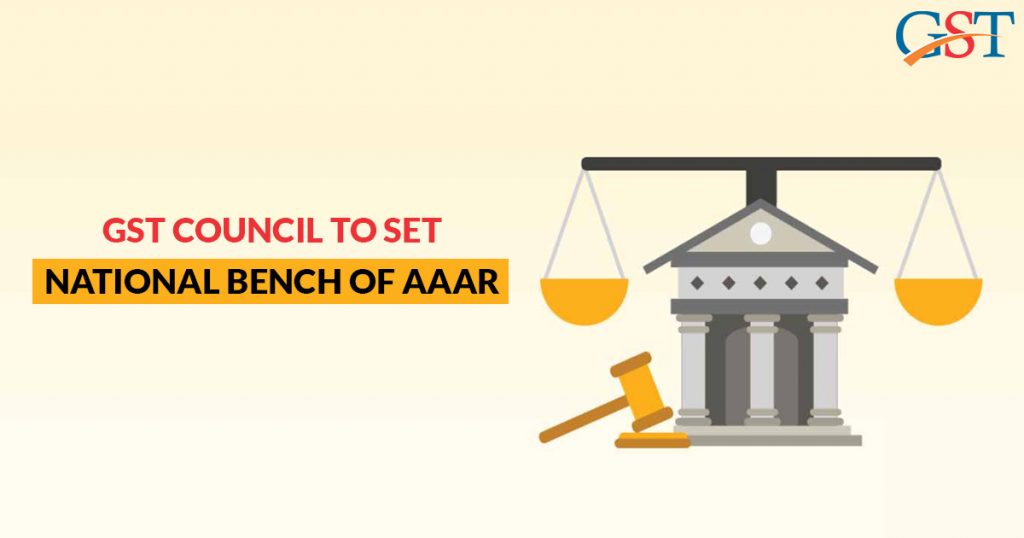
With the mission to provide certainty and uniformity to all the taxpayer, GST Council is looking forward to setting up a national bench of the Appellate Authority for Advance Ruling (AAAR) to solve and harmonise the contrary orders on alike issues passed by AARs in different states.
The GST regime was implemented with an objective to bring consistency and certainty to the taxpayers. Witnessing that it was not duly met by the Authority for Advance Ruling (AAR) mechanism in its present way, the revenue department is considering the proposal of a national bench of AAAR.
“There has been a view that a second Appellate Authority for Advance Ruling needs to be set up. It would be a national bench only to reconcile divergent verdicts passed by state AARs. We will present the proposal before the GST Council, which is expected to meet in June,” an official told PTI.
So far around 470 orders have been passed by the AARs in different states and around 69 cases have been disposed of by AAAR till March 2019. Among the 69 cases, the orders passed in around 10 cases by AAAR contradicts the orders passed by AAR. Although a few of them were later clarified by the Central Board of Indirect Taxes and Customs (CBIC), it is quite apparent that orders are bewildering and divergent.
Some instances of there contrasting cases include the New Delhi bench of the AAR which last year in March held that duty-free shops at airports are obligated to deduct GST from passengers. However, before the GST regime, these shops were exempt from service tax and Central Sales tax. This had led to the disorientation in the industry.
In the same way, the solar industry too faced a woeful situation when the Maharashtra AAR finalised 18 % GST rate to be charged for installation works, but the Karnataka bench of AAR passed an order charging 5% GST on the same.
Since the Act in its present form is unable to provide a centralised authority and contradictory rulings by AARs also resulting in economical discombobulation regarding tax implication, GST law needs to be amended for forming a second appellate authority.
Last year itself the revenue department proposed the formation of centralised appellate authority for advance ruling in order to manifest uniformity in such cases. And even the GST Council, chaired by Union Finance Minister along with state counterparts, was scheduled to discuss it in its meeting in July but the council could not arrive at a conclusion on the agenda particulars.
Under the GST law, two authorities are formed, the AAR and the AAAR. The former comprises one member from the central tax department, and another from the respective state while the latter constitutes the Chief Commissioner of Central Tax as designated by the CBIC and the Commissioner of State Tax.
An aggrieved party/industry can file a behest against the ruling by the AAR to the AAAR within a time period of 30 days, further extendable by a month. Industry perceives that since both the parties the AAR and the AAA consist of members who are tax officers, the ruling is most cases would be inclined towards the revenue side.
“A National Bench/ Regional Benches needs to be implanted in the quasi-judicial decision-making process of AAR so that decisions of the lower authority could be re-calibrated by a higher centralised authority freeing them from revenue bias and passing on relief of certainty by preserving a nation-wide single line of verdicts,” said AMRG & Associates Partner Rajat Mohan.









